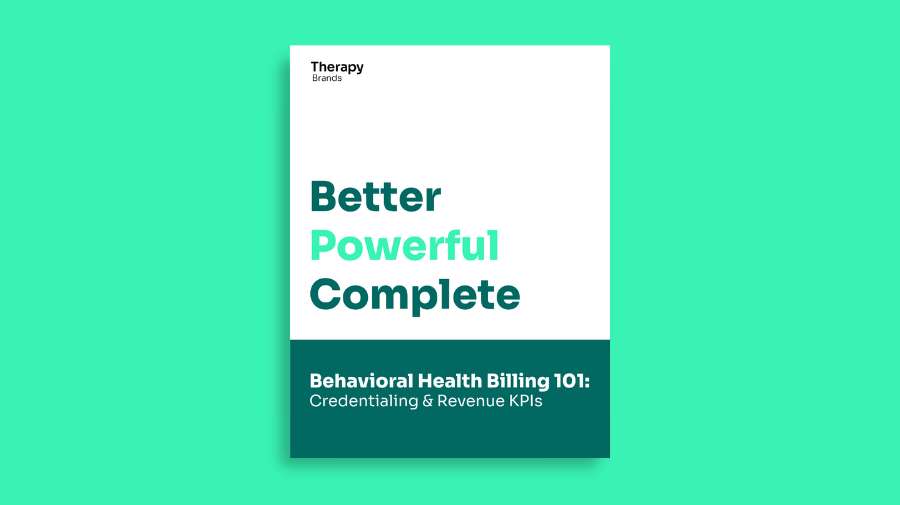Revenue Cycle Management (RCM) Key Performance Indicators (KPIs are an incredibly important component of any behavioral health provider’s revenue cycle. Key Performance Indicators are financial measurements that organizations use to gauge the status of their RCM performance. These measurements help a provider understand where they need to improve, what they are doing right, and where they are exceeding. All of this data is the key to growing an organization and optimizing a bottom line.
RCM KPI Challenges

No matter the size of an organization, everyone faces similar challenges when managing their revenue cycle at its top performance. There are dozens of KPIs that contribute to a successful revenue cycle. Some of the most common RCM Key Performance Indicator challenges include:
Managing RCM KPIs for Optimal Revenue Cycle Performance – there is not one KPI that offers a comprehensive view into the success of an organization’s revenue cycle. RCM is an equation and each KPI needs to be present in and tended to in order to solve for the solution, which is a healthy revenue cycle.
Accuracy of Reimbursement is Key – maximizing each reimbursement is essential to optimizing your revenue cycle. If there is a need to appeal for additional payment, it needs to be done early on. Many organizations struggle to adhere to payer schedules and requirements that allow them to bring in every last dollar, letting dollars slip through their fingertips.
Track and Trend Denials – Quite frequently, organizations might find that they are encountering denials of the same root cause. For example, incorrect behavioral health billing codes are being applied to particular services. Early identification of these “root causes” enables providers to prevent them from continuing in the future. Doing this successfully to create Denial Avoidance Activities instead of denial management is a challenge. In the past, fixing denials was the priority. Today, the priority is getting the claim sent out clean the very first time to avoid denials altogether.
RCM Performance Deterioration – When a backlog starts to form, it will grow extremely fast. Cleaning up that backlog takes a huge amount of time that organizations should be spending on other, more care-centered tasks.
Cash Acceleration – When appealing for additional reimbursement, it is best to work from oldest to new to avoid missing those appeal deadlines. More often than not, providers will find those appeal deadlines flying past them, causing them to miss out on critical revenue. A huge challenge is the ability to identify trends as they develop to prevent the need to appeal for additional revenue in the future.
Ensuring all KPIs are Operating at Optimal Performance – Which KPIs are important will be discussed later on, but optimizing their performance is of course a pillar challenge for organizations.
The four main KPIs to measure include:
- Cash as a percentage of net revenue – there are different ways to look at net revenue, one being the formula gross charges – adjustments = net revenue. The goal is to aim for a cash percentage of 95% of an organization’s net revenue.
- Accounts Receivable (A/R) over 90 days old – this is going to vary by payer class. The goal is to stay below 20% of all A/R
- Cost to Collect (all functions related to RCM) – the bigger the organization the more costs including labor costs, technology costs, clearinghouse costs, rework costs and more. The goal should be to keep the cost to collect under 10% of your entire revenue.
- Billing Accuracy (clean claim rate) – an organization’s clean claim rate should remain above 98%.
How Often Should You Be Checking KPIs?

At the very minimum, KPIs should be calculated on a monthly basis. There are some KPIs that are looked at on a more frequent basis. When measuring revenue, providers should look at that particular moment in time and extend their view to the prior 90-120 days.
How Can I Track KPIs?
The tracking, monitoring, and analysis of RCM KPIs can all be done with quality behavioral health billing software. Quality software empowers providers to grow their practice by providing them with rich behavioral health billing data so that they can meet every KPI and optimize their revenue cycle.
The Takeaway

To learn more about behavioral health billing software that can make a difference schedule a consultation now to learn more about how your facility can maximize reimbursements.
To learn more about RCM KPIs, download our free white paper below.
Contracting, Credentialing, & RCM KPIs White Paper

